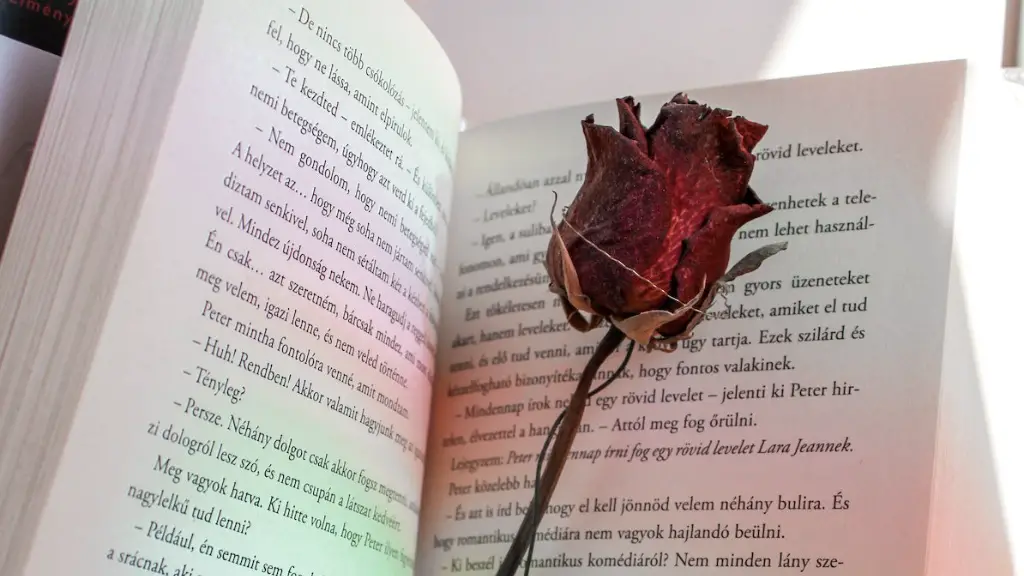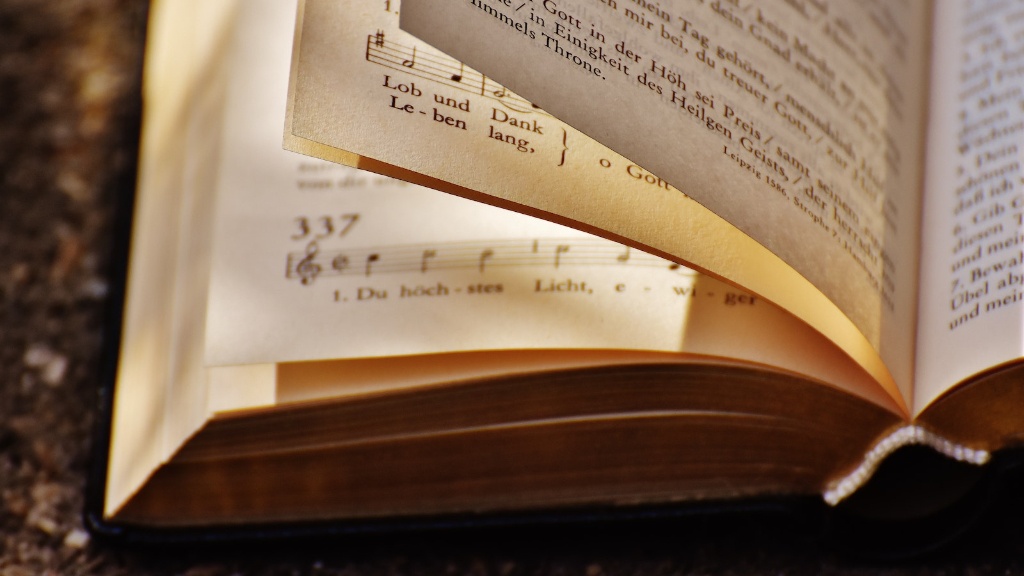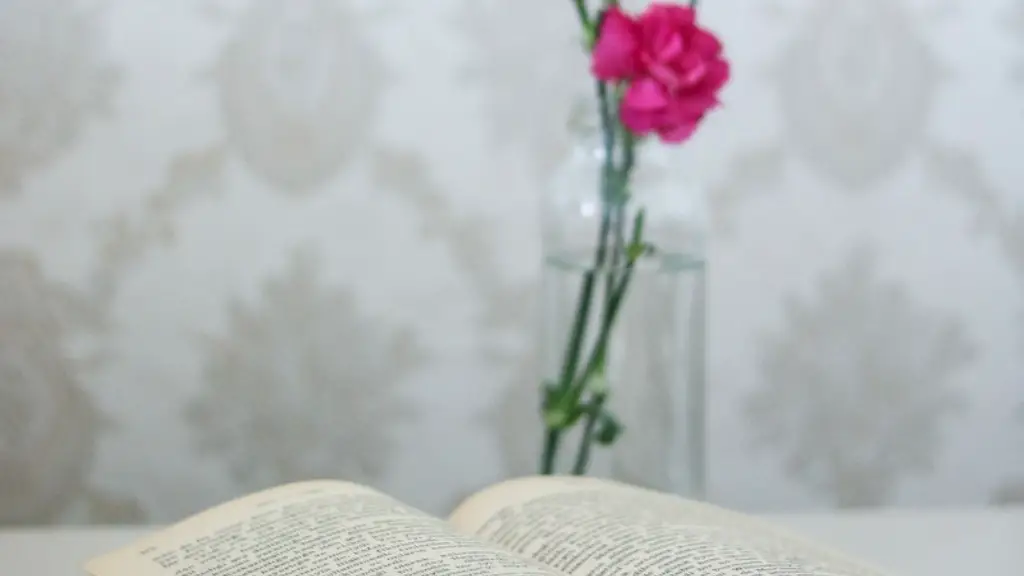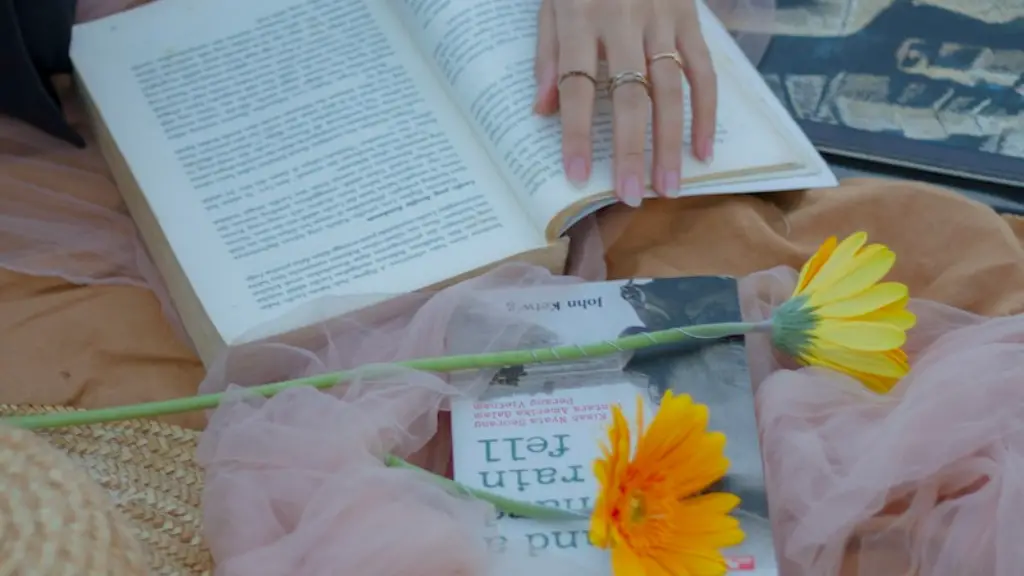What is Apostrophe in Poetry?
Apostrophe is a literary device used in poetry to address an absent person, an abstract concept, a thing, or a deceased person. It is a figure of speech and an aspect of rhetorical art. This technique has also been used in other forms of writing such as novels, stories, and plays. It is often used to emphasize a point or to get a reader’s attention. The term “apostrophe” comes from the Greek word ἀποστροφη, meaning “to turn away” or “to address someone.”
In poetry, an apostrophe is a device used to forcefully bring attention to a particular person, concept, or thing. It achieves this by having the speaker directly address or speak to the noted figure, inanimate object, abstract notion, or absence. Through this language, the poet is able to express feelings of excitement, anger, sadness, love, or admiration. It is often used to string the reader along the entire poem and give it cohesion while at the same time providing a point of reference.
Apostrophe is a type of direct address where the speaker addresses an absent or imaginary person, or an inanimate object—in a literary work. An apostrophe is often used to characterize the narrator, allowing the reader to gauge the narrator’s mental state. It is also used to add dramatic and emotional elements to a text, making it more vivid and powerful. For example, in William Shakespeare’s Hamlet, the title character uses an apostrophe to ask the painting of his father—who has been deceased—how he could be so calm while he commits all these egregious acts.
An apostrophe is often used to emphasize the poet’s feelings and describe his or her perspective on the subject. Additionally, among other effects, it can draw attention to the feelings of an individual in regards to the situation at hand. The apostrophe is a powerful tool which allows the poet to provide further depth and meaning to his piece.
Although it is not often used, an apostrophe can be used to refer to a third person in a text. This is known as a “third-person apostrophe” and is most often used in novels and other long-form texts. By doing this, the narrator is able to convey a message about the third person and create a more immersive experience for the reader.
Apostrophe is a very useful tool for writers because it can emphasize a point or idea that the author is trying to convey. It is especially helpful when it comes to poetry, as it allows the poet to explore certain topics in a more expressive and creative way. It can also add a layer of depth to the poem and provide the reader with additional insight into the poet’s feelings and perspective.
When to use Apostrophe?
Apostrophe should be used when a writer wishes to draw attention to a certain concept or person. It can be used to create a more immersive text which allows the reader to better relate to the characters and to convey a more powerful message. Additionally, it is a great way to emphasize a point or idea without going overboard, as it is not used as often as traditional language.
Apostrophe can be used in any type of writing from poems to novels and even short stories. It allows the writer to express himself or herself more effectively and gives the text a unique flair. Additionally, it can be used to provide the reader with additional insight and appreciation for the writer’s views or perspective on a particular topic.
The effectiveness of apostrophe depends on how properly and skillfully it is used. Poorly written apostrophes can make the text difficult to read and disrupt the flow of the text; therefore, it is important to use it with caution and precision in order to ensure a smooth reading experience. Additionally, it is important to ensure that the apostrophe is accompanied by other literary literary devices such as metaphors and allusions in order to create a more integrated and rich text.
Apostrophe can be used in any type of literature and will always have the potential to provide the reader with greater insight and appreciation of the text. As a literary device, it can be used in conjunction with other literary devices to produce a flowing and mesmerizing text.
Types of Apostrophe
Apostrophes come in various forms. Below are some of the most common types.
- Addressing a deity: In this type of apostrophe, the speaker addresses a divine being such as God or a god. This is often used to seek solace, guidance, or assistance in a time of need.
- Addressing an inanimate object or an abstract concept: This type of apostrophe is often used to draw attention to a person, concept, or event and underscore its importance or relevance.
- Addressing a deceased person: This type of apostrophe is used to emphasize the poet’s feelings of grief or loss and is usually done in a somber tone.
- Addressing a third person: This type of apostrophe is used when the narrator addresses a third person in order to emphasize their feelings or perspective on the situation.
Overall, apostrophes are a powerful tool that can be used to draw attention to a person, concept, or event and provide the reader with greater insight into the poet’s feelings and perspective.
Examples of Apostrophe
Apostrophes are commonly used in literature, particularly in poetry. Below are some examples of apostrophes in poetry.
- “O, western wind, when wilt thou blow
The small rain down can rain?”– Christopher Marlowe, “The Passionate Shepherd to His Love”
- “Do not go gentle into that good night,
Old age should burn and rave at close of day;
Rage, rage against the dying of the light.”– Dylan Thomas, “Do Not Go Gentle into That Good Night”
- “Shall I compare thee to a summer’s day?
Thou art more lovely and more temperate:
Rough winds do shake the darling buds of May,
And summer’s lease hath all too short a date.”– William Shakespeare, “Sonnet 18”
- “Defeat, not oft, shall be my song
Makeme thine avenger, thou must canthe thy Woe
Tell the world, that I did not sore along,
But kept the path before me, where I go.”– Ralph Waldo Emerson, “A Psalm of Life”
Tips & Advice
When using apostrophe, it is important to ensure that it is used effectively and not overused. Spending too much time on apostrophes can cause the poem to become disjointed, making it difficult for the reader to understand. Additionally, it is important to ensure that the apostrophe does not disrupt the flow and cohesion of the poem. Additionally, when using apostrophes, it is important to ensure that the person you are addressing is properly characterized and the background is properly set.
When employing the use of apostrophe, it is important to ensure that the poet is being authentic and sincere in his or her emotions and expressions. If a poet is forcefully adding apostrophes to a text, it can seem inauthentic and out of place. Additionally, overexerting one’s feelings can cause the text to become disjointed and unintelligible. Apostrophe should always be used sparingly and carefully.
It is important to pay attention to the grammar when using apostrophes. Oftentimes, apostrophes are placed in the wrong part of the sentence and can disrupt the flow and clarity of the text. Additionally, it is important to ensure that the apostrophe is placed correctly in terms of punctuation in order to ensure that it is conveying the right meaning.
Conclusion
Apostrophe is a powerful and effective tool for writers to express themselves more effectively in their writings. It can be used to emphasize a point or idea and can also be used to draw attention to a person, concept, or event. Additionally, it can be used to convey a powerful message and provide the reader with additional insight into the writer’s feelings. Although it is often used in poetry, it can be used in any kind of literature. Understanding apostrophe and knowing when to use it properly can help writers create more dynamic and engaging texts.





